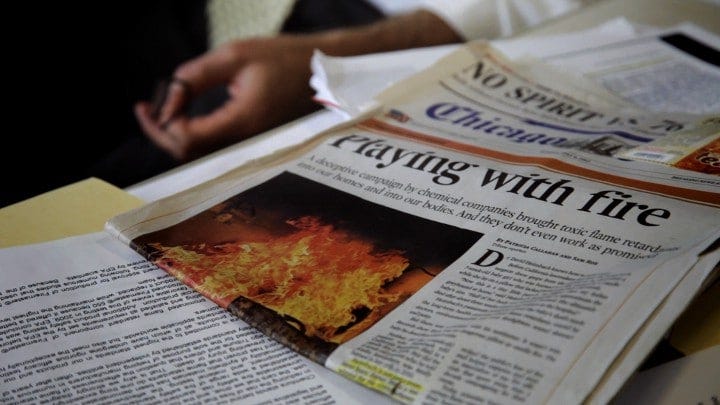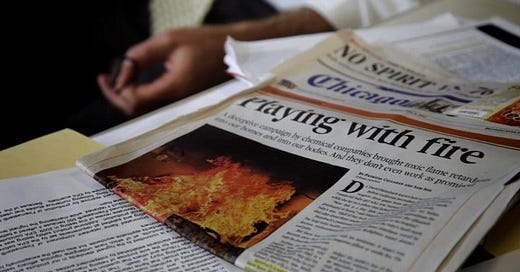‘Toxic Hot Seat’ Review

Toxic Hot Seat is, first and foremost, an excellent work of journalism. It’s also an “issue documentary,” a genre that these days has a bit of a bad reputation among some critics. Yet, as this new film from Kirby Walker and James Redford (The Big Picture: Rethinking Dyslexia) proves so articulately, the “film with a cause” isn’t necessarily a discrete c…
Keep reading with a 7-day free trial
Subscribe to Nonfics to keep reading this post and get 7 days of free access to the full post archives.



